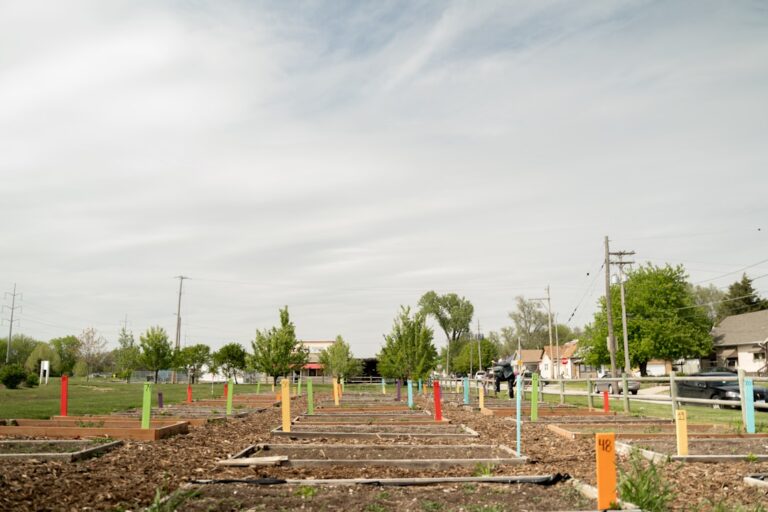The “Grass is Greener” phenomenon encapsulates a pervasive human tendency to believe that others possess a more desirable or fulfilling life than one’s own. This mindset often leads individuals to yearn for what they perceive as better circumstances, whether in relationships, careers, or lifestyle choices. The phrase itself suggests that the grass appears greener on the other side of the fence, implying that people frequently overlook the challenges and imperfections inherent in their own situations while idealizing those of others.
This phenomenon is not merely a fleeting thought; it can significantly influence decision-making, emotional well-being, and overall life satisfaction. Historically, this mindset has been observed across various cultures and eras, often exacerbated by societal pressures and expectations. The allure of a seemingly better life can lead to dissatisfaction with one’s current circumstances, prompting individuals to chase after elusive ideals.
This pursuit can manifest in various forms, such as changing jobs in search of greater fulfillment, ending relationships in hopes of finding a more compatible partner, or even relocating to different environments. However, the reality is that every situation comes with its own set of challenges and complexities, which are often obscured by the allure of the unknown.
Key Takeaways
- The “Grass is Greener” phenomenon refers to the tendency to believe that other people’s lives or situations are better than our own.
- Understanding the psychological implications of the “Grass is Greener” mentality can help individuals recognize and address feelings of inadequacy and dissatisfaction.
- Social media often exacerbates the “Grass is Greener” effect by presenting curated and idealized versions of others’ lives, leading to comparison and discontent.
- The “Grass is Greener” mentality can negatively impact personal relationships by causing individuals to undervalue their current partners or friendships.
- Overcoming the “Grass is Greener” mentality involves cultivating gratitude, contentment, and mindfulness to appreciate the present and find fulfillment.
Understanding the Psychological Implications
The psychological implications of the “Grass is Greener” mentality are profound and multifaceted. At its core, this phenomenon is rooted in cognitive biases that distort perception and judgment. One such bias is the “availability heuristic,” where individuals assess the likelihood of an event based on how easily they can recall similar instances.
When people see others seemingly thriving, they may overestimate the benefits of those situations while underestimating the difficulties involved. This skewed perception can lead to chronic dissatisfaction and a perpetual sense of longing for something different. Moreover, the “Grass is Greener” mindset can contribute to feelings of inadequacy and low self-esteem.
When individuals constantly compare themselves to others, they may internalize a narrative that they are not enough or that their lives lack value. This can create a vicious cycle where dissatisfaction breeds further comparison, leading to an ongoing quest for external validation. The psychological toll can manifest in anxiety, depression, and a general sense of discontentment, making it crucial to understand and address these underlying issues.
Social Media and the “Grass is Greener” Effect

In the digital age, social media has amplified the “Grass is Greener” phenomenon to unprecedented levels. Platforms like Instagram, Facebook, and TikTok allow users to curate their lives, showcasing only the highlights while concealing the mundane or challenging aspects. This selective sharing creates an illusion of perfection that can distort reality for viewers.
As individuals scroll through carefully crafted images and stories, they may find themselves feeling inadequate or envious, believing that others are living more fulfilling lives. The impact of social media on mental health cannot be overstated. Studies have shown that excessive social media use is linked to increased feelings of loneliness and depression.
The constant exposure to idealized representations of life can lead to a distorted self-image and a relentless pursuit of unattainable standards. Furthermore, the addictive nature of social media can exacerbate these feelings, as users find themselves trapped in a cycle of comparison and validation-seeking behavior. Understanding this dynamic is essential for mitigating its effects and fostering healthier relationships with both oneself and others.
The Impact on Personal Relationships
| Metrics | Impact |
|---|---|
| Communication | Decreased face-to-face communication |
| Quality time | Decreased quality time spent together |
| Trust | Impact on trust due to lack of in-person interaction |
| Conflict | Increase in conflicts due to stress and uncertainty |
| Support | Challenges in providing and receiving support |
The “Grass is Greener” mentality can have significant repercussions on personal relationships. When individuals become preoccupied with the idea that they could be happier or more fulfilled with someone else or in a different situation, it can lead to dissatisfaction within their current relationships. This mindset often fosters unrealistic expectations and a lack of appreciation for one’s partner or the relationship itself.
As a result, individuals may find themselves constantly seeking external validation or comparing their relationship to those portrayed in media or by peers.
Communication breakdowns often ensue, leading to misunderstandings and resentment.
In some cases, this can culminate in infidelity or the dissolution of relationships altogether, as individuals chase after an idealized version of love or companionship that may not exist in reality. Recognizing the detrimental effects of this mindset is crucial for fostering healthier connections and nurturing existing relationships.
Overcoming the “Grass is Greener” Mentality
Overcoming the “Grass is Greener” mentality requires intentional effort and self-reflection. One effective strategy is to cultivate self-awareness by recognizing when these thoughts arise and understanding their triggers. Journaling can be a powerful tool in this process; by documenting feelings and thoughts related to comparison, individuals can gain insight into their motivations and desires.
This practice encourages mindfulness and helps individuals confront their feelings rather than suppressing them. Additionally, reframing negative thoughts can be instrumental in shifting one’s perspective. Instead of focusing on what others have that one lacks, individuals can practice gratitude for their own circumstances.
This shift in focus allows for a deeper appreciation of personal achievements and relationships, fostering a sense of contentment. Engaging in activities that promote self-growth—such as pursuing hobbies, setting personal goals, or volunteering—can also help redirect energy away from comparison and towards self-improvement.
Cultivating Gratitude and Contentment

Cultivating gratitude is a powerful antidote to the “Grass is Greener” mentality. Research has shown that practicing gratitude can lead to increased happiness and life satisfaction. By regularly reflecting on what one appreciates about their life—be it relationships, experiences, or personal achievements—individuals can shift their focus from what they lack to what they have.
This practice not only enhances emotional well-being but also fosters resilience against negative comparisons.
Techniques such as meditation or deep breathing exercises encourage individuals to remain present in the moment rather than getting lost in thoughts about what could be better elsewhere.
By grounding oneself in the present, it becomes easier to recognize the value of current experiences and relationships. Engaging in acts of kindness towards oneself and others can also reinforce feelings of gratitude, creating a positive feedback loop that enhances overall well-being.
Seeking Professional Help for “Grass is Greener” Syndrome
In some cases, the “Grass is Greener” mentality may be deeply ingrained and difficult to overcome without professional support. Therapy can provide individuals with valuable tools to address underlying issues related to self-esteem, anxiety, or depression that contribute to this mindset. Cognitive-behavioral therapy (CBT), for instance, focuses on identifying and challenging negative thought patterns while promoting healthier coping strategies.
Therapists can also help individuals explore their values and goals more deeply, guiding them toward a clearer understanding of what truly brings fulfillment in life. By working through these issues in a supportive environment, individuals can develop healthier perspectives on their circumstances and relationships. Group therapy or support groups may also offer valuable insights from others who share similar struggles, fostering a sense of community and understanding.
Embracing the Present and Finding Fulfillment
Embracing the present moment is essential for finding fulfillment amidst the allure of the “Grass is Greener” mentality. By recognizing that every situation has its complexities and challenges, individuals can cultivate a deeper appreciation for their own lives while letting go of unrealistic comparisons. The journey toward contentment involves not only self-reflection but also active engagement with one’s surroundings and relationships.
Ultimately, finding fulfillment requires a commitment to personal growth and self-acceptance. By fostering gratitude, seeking professional help when needed, and embracing mindfulness practices, individuals can break free from the cycle of comparison and discover joy in their unique journeys. In doing so, they pave the way for richer experiences and deeper connections with themselves and others, transforming the way they perceive their lives in relation to those around them.
When it comes to the saying “the grass is greener on the other side,” it often reflects a sense of longing or dissatisfaction with one’s current situation. This concept can be further explored through the theories of truth, such as correspondence, coherence, and pragmatic truth. Understanding these theories can shed light on why we may perceive things as better elsewhere. To delve deeper into this topic, check out this article on
























+ There are no comments
Add yours